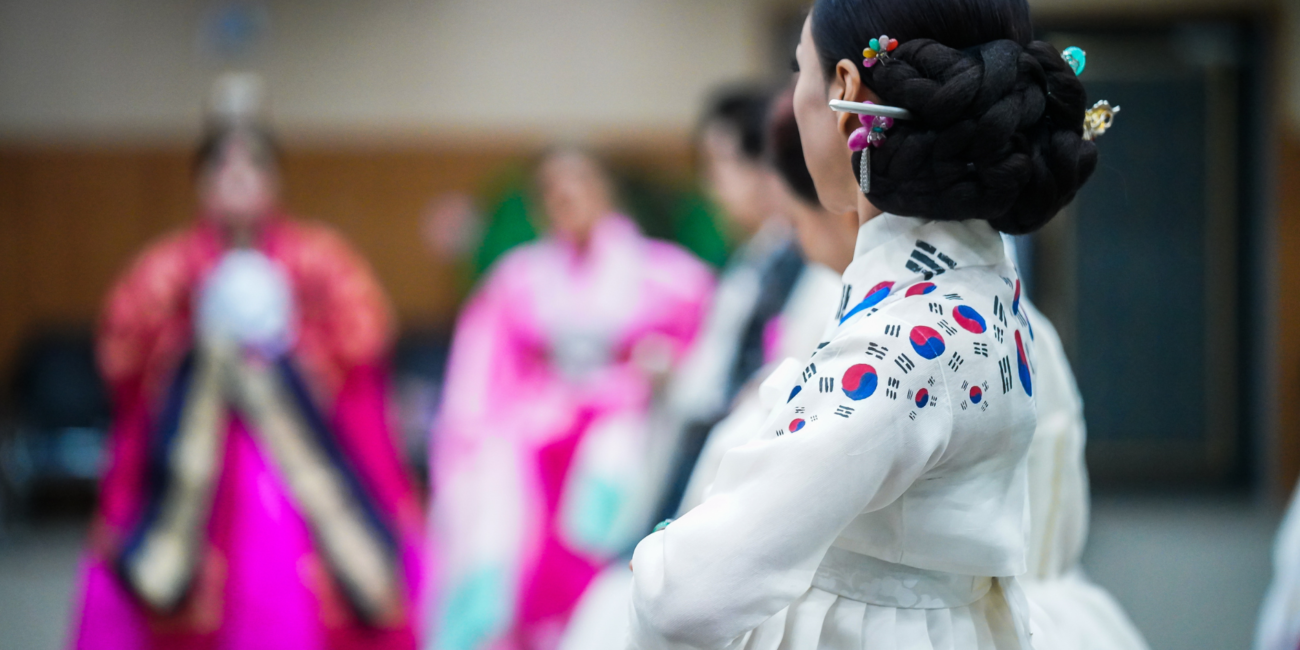Chuseok, known as Korea’s Harvest Festival, is one of the most important and widely celebrated holidays in Korea. It’s a time when families come together to honour their ancestors, share in the bounty of the harvest, and enjoy traditional foods and activities. This rich cultural event, deeply rooted in Korea’s history, offers a unique opportunity for people of all backgrounds to learn about and appreciate Korean traditions.
What is Chuseok?
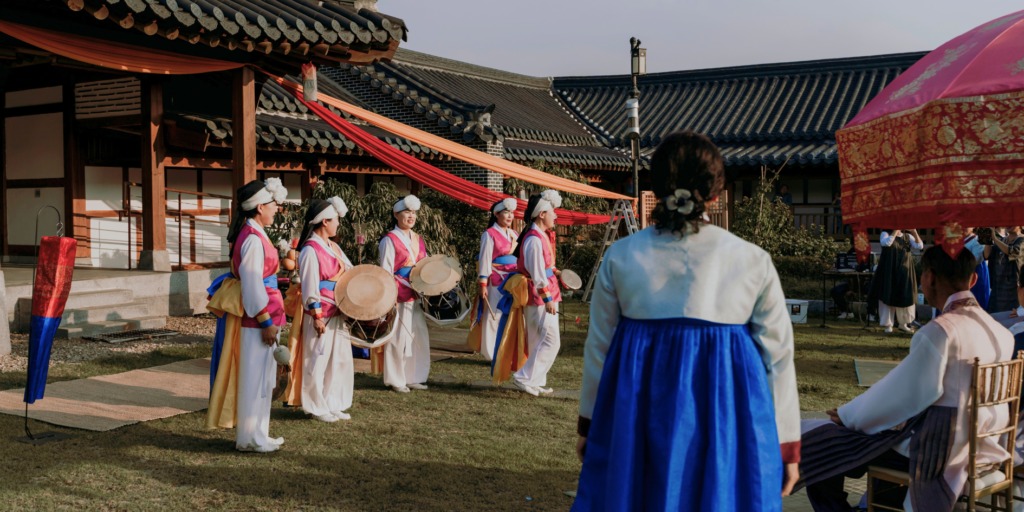
The Origin and History of Chuseok
Chuseok traces its origins back to Korea’s agrarian past, where it was celebrated as a time of giving thanks for the harvest. The festival, which usually takes place on the 15th day of the 8th month of the lunar calendar, coincides with the full moon, symbolising abundance and unity. The earliest mentions of Chuseok date back to the Silla Dynasty (57 BC – 935 AD), where it was known as “Gabae.” During this time, the festival was celebrated with various activities, including weaving competitions and archery contests, reflecting the community’s connection to their ancestors and land.
As Korea evolved over the centuries, so did the significance of Chuseok. It became a time not only to celebrate the harvest but also to honour ancestors through rituals and offerings. These practices have been passed down generations, making Chuseok a vital part of Korean cultural identity.
Traditional Chuseok Celebrations
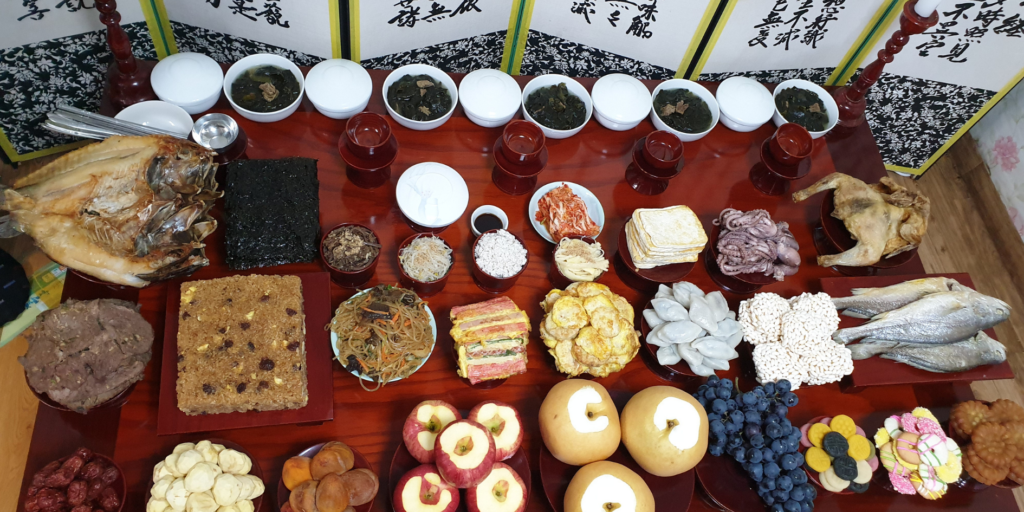
Chuseok is a time for family reunions, with many Koreans travelling long distances to return to their ancestral homes and reconnect with loved ones. A key aspect of the celebration is ancestral worship, where families perform rituals known as “Charye.” Families come together, cooking and setting up a table with food offerings, including rice, fruits, and traditional Korean dishes, to honour deceased family members. This practice reflects the deep respect Koreans have for their ancestors and the belief that their spirits continue to watch over the living.
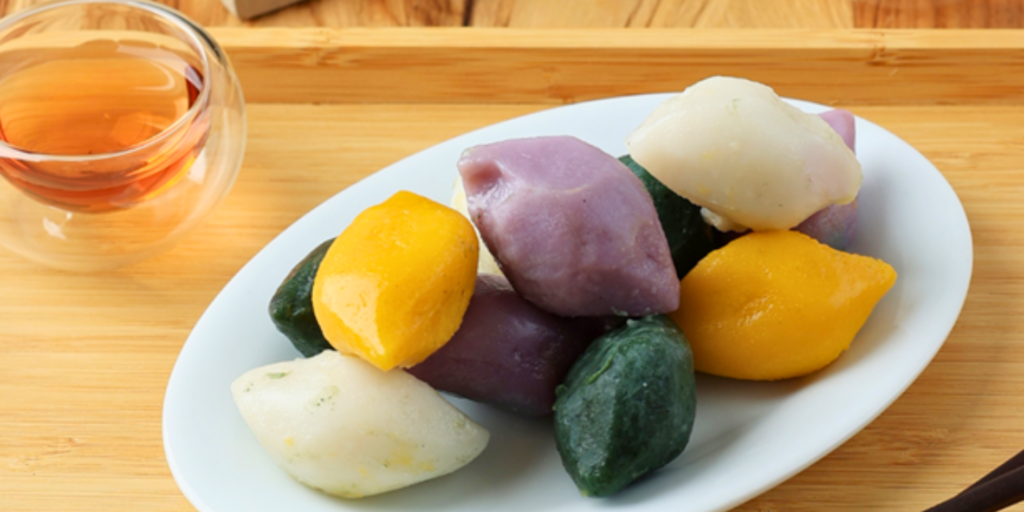
Food plays a central role in Chuseok celebrations, with “Songpyeon”, a type of rice cake, being one of the most iconic dishes. Songpyeon are small, crescent-shaped rice cakes that are filled with ingredients like sesame seeds, chestnuts, and beans. These rice cakes are then steamed on a bed of pine needles, giving them a distinct aroma and flavour. Other traditional foods enjoyed during Chuseok include Jeon (Korean pancakes), Japchae (stir-fried glass noodles), and various seasonal fruits.
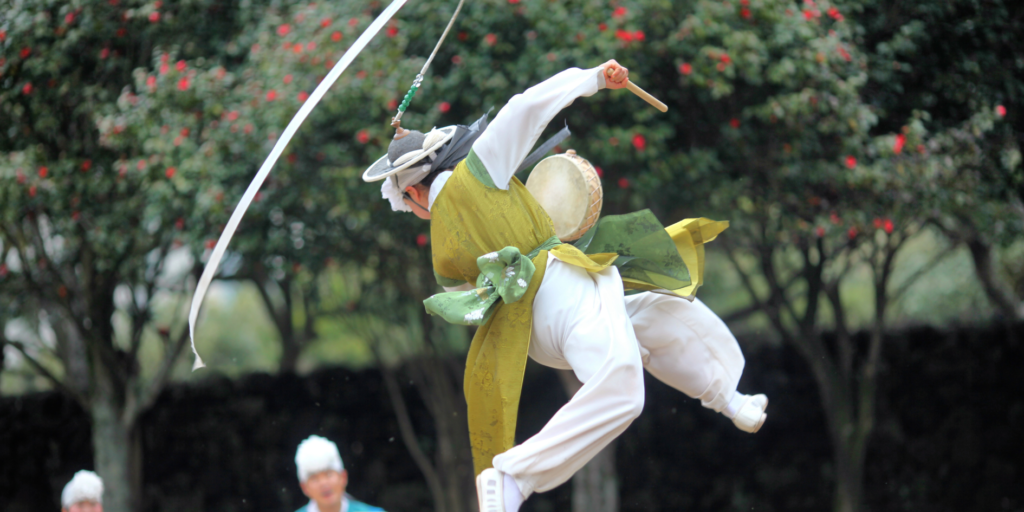
In addition to food and rituals, Chuseok is also celebrated with folk games and activities. “Ssireum”, a form of Korean wrestling, is a popular sport during the festival, where participants wrestle in a sandy ring, to determine the strongest competitor. Archery contests and traditional dances, such as “Ganggangsullae”, a traditional circle dance performed under the full moon symbolising unity and harmony, are also part of the festivities, bringing communities together in a spirit of camaraderie and joy.
The Cultural Significance of Chuseok

Chuseok as a Harvest Festival
Chuseok‘s agricultural roots are evident in the way the festival is celebrated. Traditionally, it marks the end of the harvest season, a time when farmers would gather the fruits of their labour and give thanks for the abundance. The festival is a time for sharing where families and communities gather to celebrate the harvest and savour the seasonal produce.The full moon, which is believed to bring good fortune, is a significant symbol during Chuseok, representing the fullness of life and the unity of family.
The Role of Ancestors in Chuseok
Ancestral rites are the heart of Chuseok celebrations. The importance of these rituals lies in the belief that ancestors continue to influence the lives of their descendants. Through “Charye”, families express their gratitude and seek blessings for the future. This connection to the past is further emphasised through “Seongmyo”, the practice of visiting and cleaning ancestral graves. Families travel to their ancestral burial sites, where they tidy the graves and offer food and drinks to the spirits of their ancestors. This act of reverence strengthens the bond between generations and ensures that the memory of the ancestors remains alive.
Modern Celebrations of Chuseok
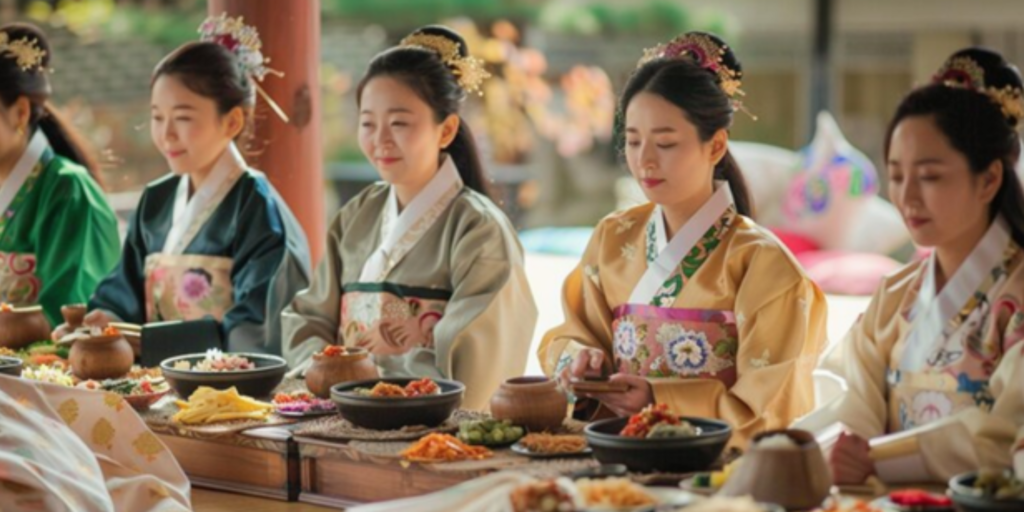
How Chuseok is Celebrated Today
Chuseok remains a deeply cherished holiday. However, the way it is celebrated has evolved and adapted to contemporary lifestyles. Urban and rural celebrations differ, with urban dwellers often adapting traditional practices to fit their lifestyles. In cities, where space is limited, some families may choose to hold Charye in their homes rather than travelling to ancestral graves. Despite these changes, the essence of Chuseok—family, food, and gratitude—remains strong.
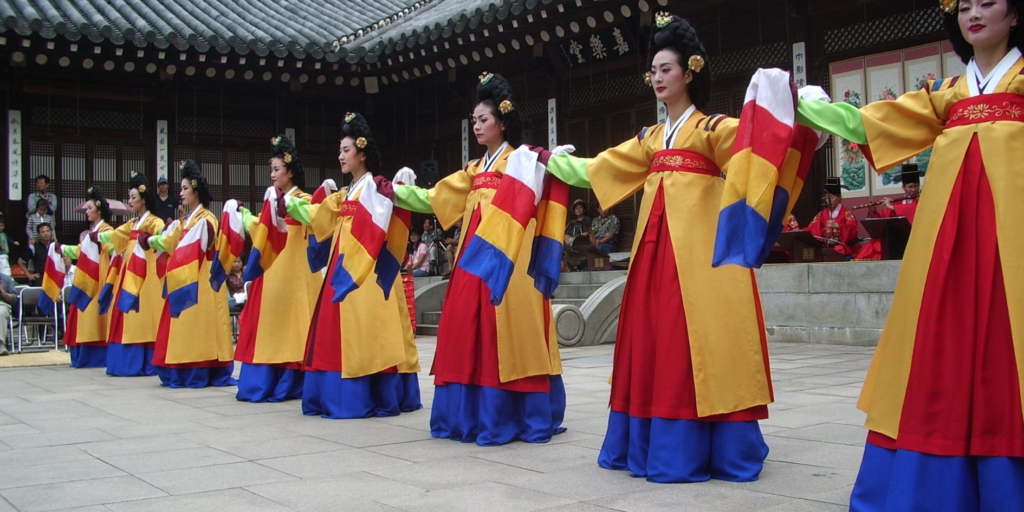
Public holidays during Chuseok enable Koreans to take time off work and spend it with their families. The roads are often crowded with people travelling to their hometowns, and markets bustle with activity as people prepare for the festivities. In addition to traditional celebrations, modern Chuseok often includes public events, such as cultural performances and festivals, where people can experience the richness of Korean culture.
Chuseok in the Global Context
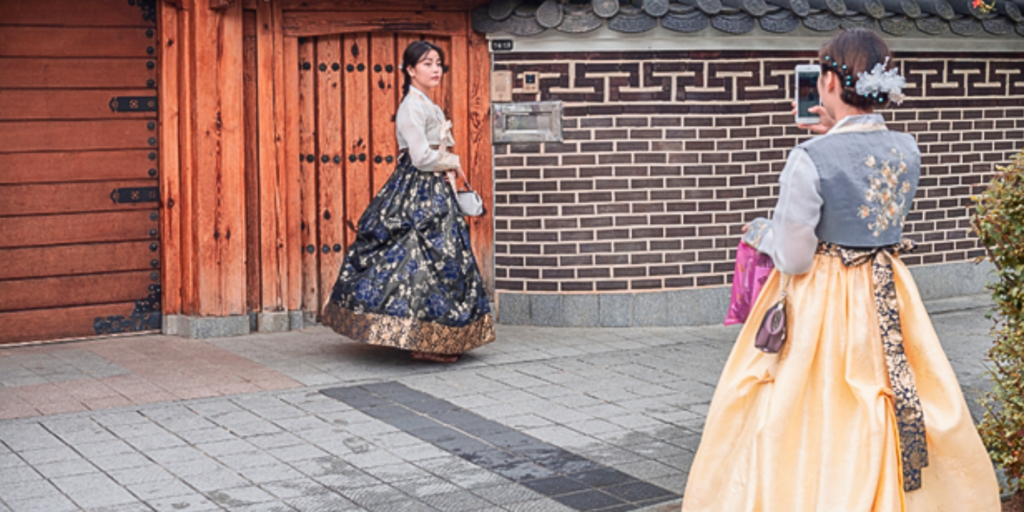
As the Korean diaspora has spread around the world, so too has the celebration of Chuseok. Korean communities in countries like the United States, Canada, and Australia hold Chuseok events, allowing them to stay connected to their cultural roots. These celebrations also serve as a platform for cultural exchange, where people from different backgrounds can learn about and participate in Korean traditions.
Chuseok’s influence on global awareness of Korean culture has grown in recent years, thanks in part to the popularity of Korean pop culture, including K-pop, Korean dramas, and cuisine. Festivals and events celebrating Chuseok are held in various parts of the world, showcasing the beauty and diversity of Korean culture to a global audience.
Incorporating Chuseok in the Classroom
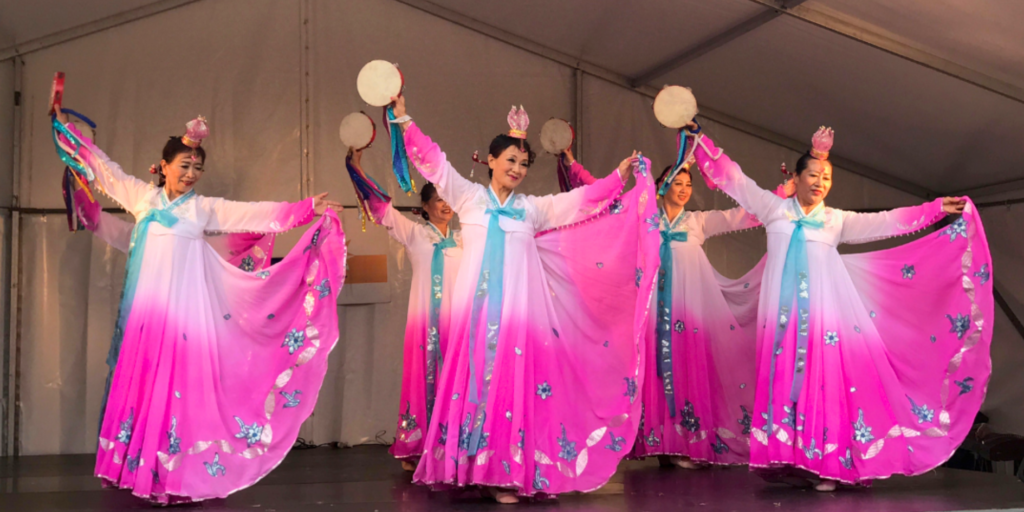
Educational Programs by Cultural Infusion
Cultural Infusion offers cultural education programs across Australia that help educators incorporate Korean culture, including Chuseok, into the classroom. These programs provide students with a hands-on experience of Korean traditions, including cultural educational program such as Korean Classical Dance available in Victoria and News South Wales, allowing them to engage with the culture in a meaningful way. By learning about Chuseok, students gain insights into the values of respect, gratitude, and family that are central to Korean society.
Bringing Chuseok into the classroom can be a rewarding experience for both teachers and students. Our Chinese Korean Ethnic Dance cultural educational program (available in Victoria), provides a hands-on opportunity for students to engage with cross-cultural traditions and learn the history of members of the Korean ethnic group in Jilin, north-eastern China in a supportive and inclusive environment. With dance inspired by the motions of farming such as ‘walking the field ridges,’ students will learn the significance behind each movement, creating an unforgettable experience that not only educates but also inspires a deep appreciation for cultural diversity. Collaborating with local Korean communities and experts can also enhance the learning experience, providing students with authentic insights into the festival.
The Importance of Chuseok in Promoting Intercultural Understanding
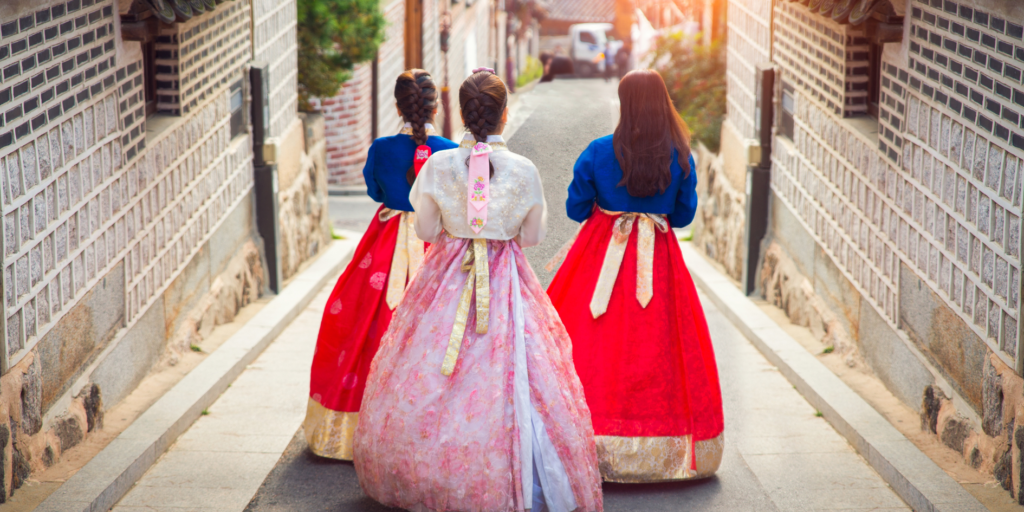
Building Bridges Through Cultural Celebrations
Cultural festivals like Chuseok play a vital role in promoting global awareness and intercultural understanding. By celebrating Chuseok in educational settings, students learn to appreciate the diversity of cultural traditions and the values they represent. This enhances their intercultural competency, preparing them to navigate a multicultural world with empathy and respect.
Future of Chuseok Celebrations
As Korea continues to modernise, there is a growing emphasis on preserving traditional customs like Chuseok. Educators and cultural organisations play a crucial role in this effort by adapting Chuseok practices for future generations and encouraging cultural exchange. By participating in Chuseok celebrations, people from all backgrounds can contribute to the preservation and appreciation of Korean culture.
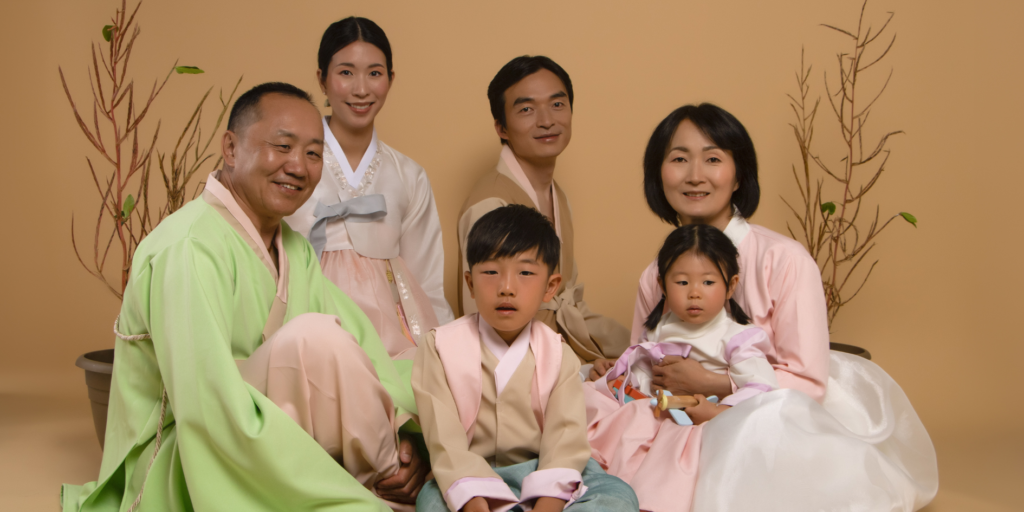
Book your Chuseok celebrations now!
Explore our cultural education programs available Australia-wide to celebrate Lunar New Year for the beginning of the new year! For more culturally significant dates to celebrate in the classroom, have a look at Cultural Infusion’s expertly designed Cultural Calendar.
Chuseok is more than just a harvest festival; it is a celebration of family, gratitude, and tradition. Its significance in Korean culture cannot be overstated, and by learning about and participating in Chuseok, we can all gain a deeper appreciation for the values it embodies. Cultural Infusion’s programs offer a unique opportunity to bring these traditions into the classroom, fostering intercultural understanding and respect among students. As we look to the future, it is essential to continue celebrating and preserving cultural heritage, ensuring that festivals like Chuseok remain a vibrant part of our global cultural landscape.

